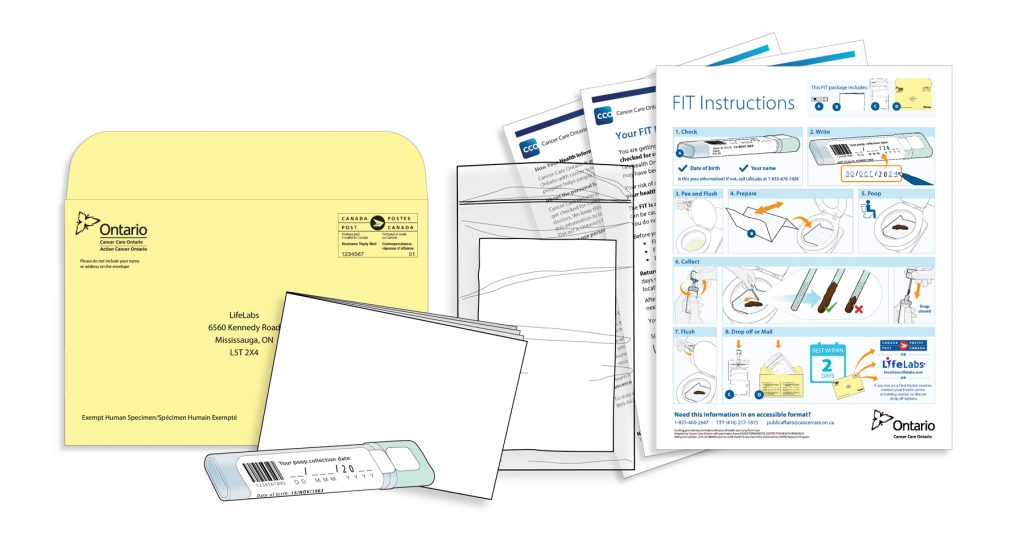Take Control to Prevent Colon Cancer
by Samantha Morris

You have the power to reduce your colon cancer risk.
March is Colon Cancer Awareness Month and Thunder Bay Regional Health Sciences Centre is encouraging you to take action against colon cancer by learning about steps you can take at home to reduce your risk.
Colon cancer is the third most commonly diagnosed cancer in Ontario and the third leading cause of cancer death in men.
“The best tool available to prevent colon cancer is screening,” explains Dr. Jordan Green, Regional Colorectal Screening and GI Endoscopy Lead. “When colon cancer is caught early, 9 out of 10 people can be cured. Yet, based on recent statistics, 46% of eligible individuals in Northwestern Ontario are overdue for colon cancer screening.”
Average risk individuals should be screened every two years with a take-home fecal immunochemical test (FIT) kit. Someone is at average risk if they are 50 to 74 years old with no first-degree relative (parent, brother, sister or child) who has been diagnosed with colorectal cancer. The FIT kit is free and is available from your health care provider. If you have a family history of colon cancer, you should speak to your health care provider about the type of screening that is right for you.
“Getting screened for colon cancer is just one step you can take to prevent colon cancer,” says Dr. Green. “Some risk factors for colon cancer are beyond your control, for example, the risk of getting colon cancer increases when you enter your fifties. If you have a parent, sibling, or child who has had colon cancer, you are also at a higher risk of developing the disease. However, there are certain lifestyle changes you can make to help reduce your risk.”
Get active
There is evidence to support that regular physical activity is associated with reduced risk of colon cancer. Adults should get at least 150 minutes of moderate to vigorous activity each week.
Avoid eating too much red meat and processed meat
There is evidence that eating red or processed meats can increase your risk of getting colon cancer. Eat little, if any processed meat (deli meat, hot dogs, sausages, etc.) and limit the amount of red meat you consume (beef, pork, lamb, etc.).
Eat your fruits, veggies and whole grains
Evidence has shown that eating foods like fruits, vegetables, legumes and whole grains play a role in preventing cancer because these foods are high in fibre and nutrients.
Limit your alcohol consumption
When it comes to cancer prevention, there is no safe amount of alcohol. If you do decide to drink alcohol, limit your consumption to one drink a day for women and no more than two drinks a day for men.
Live smoke-free
Although we think of smoking as causing lung cancer, it also increases the risk of many types of cancer — including colon cancer. Quitting smoking is the best thing you can do for your overall health and to reduce your risk of cancer.
Another great way of identifying your risk for colon and other cancers, and learning more about what you can do to lower your risk, is Cancer Care Ontario’s My CancerIQ. By visiting their website at www.mycanceriq.ca, you can complete a personalized cancer risk assessment.
Let Colon Cancer Awareness Month act as a reminder to take care of your health and talk to your health care provider about colon cancer.